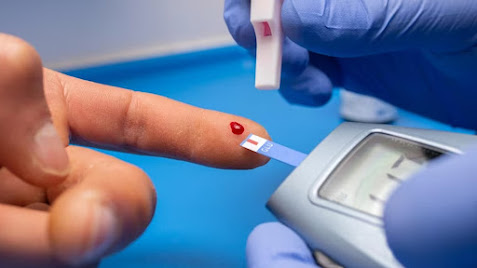How to Recognize the Warning Signs of Hyperglycemia
Hyperglycemia, or high blood sugar, demands our attention due to its potential impact on overall health. Recognizing the warning signs is crucial for early intervention, and in this guide, we'll delve into the symptoms of hyperglycemia while highlighting the expertise of Access Health Care Physicians, LLC.
Understanding the Symptoms
Access Health Care Physicians, LLC emphasizes the importance of being vigilant about the symptoms of hyperglycemia. These signs can be subtle but play a vital role in identifying the condition early. Here's a comprehensive look at the warning signs:
1. Increased Thirst:
Unexplained and persistent thirst can be an early indicator of hyperglycemia. The body attempts to flush out excess sugar through increased urination, leading to dehydration.
2. Frequent Urination:
High blood sugar levels prompt the kidneys to work harder, causing an increase in urine production. If you find yourself making frequent trips to the bathroom, it's time to take note.
3. Fatigue and Weakness:
Hyperglycemia can impact energy levels, leading to persistent fatigue and weakness. If you're feeling unusually tired, it could be a sign that your body is struggling to regulate blood sugar.
4. Blurry Vision:
Elevated blood sugar levels can affect the lenses in your eyes, leading to blurry vision. If you experience changes in eyesight, it's crucial to consult with healthcare professionals promptly.
5. Slow Healing of Wounds:
Hyperglycemia can hinder the body's ability to heal. If you notice wounds taking longer to heal than usual, it may be indicative of elevated blood sugar levels.
Access Health Care Physicians, LLC: Your Partner in Health
Early recognition of hyperglycemia symptoms is a key step toward effective management. Access Health Care Physicians, LLC, a trusted healthcare provider, plays a vital role in guiding individuals through the diagnosis and treatment of hyperglycemia.
How Access Health Care Physicians, LLC Can Help:
Timely Diagnosis:
Access to state-of-the-art diagnostic tools for accurate and timely identification of hyperglycemia.
Comprehensive Treatment Plans:
Personalized treatment strategies that address the specific needs of individuals, incorporating lifestyle modifications and medical interventions as necessary.
Educational Support:
In-depth guidance on recognizing symptoms, understanding the impact of hyperglycemia, and proactive measures for long-term health.
Conclusion
Recognizing the warning signs of hyperglycemia is a proactive step towards managing the condition effectively. Access Health Care Physicians, LLC, stands ready to support individuals in this journey, providing expertise and personalized care.
5 Engaging FAQs
Q: Can hyperglycemia symptoms develop suddenly?
A: Yes, in some cases, symptoms may appear suddenly. Regular check-ups and awareness of risk factors can aid in early detection.
Q: Are hyperglycemia symptoms the same for everyone?
A: Symptoms can vary, and some individuals may experience only a few. Access Health Care Physicians, LLC, considers individual differences in diagnosis and treatment.
Q: Is hyperglycemia only linked to diabetes?
A: While diabetes is a common cause, other factors like stress and certain medical conditions can contribute. Access Health Care Physicians, LLC, conducts thorough assessments to identify underlying causes.
Q: Can hyperglycemia be managed without medication?
A: Lifestyle changes, including diet and exercise, play a crucial role. Access Health Care Physicians, LLC, provides guidance on natural management strategies, but medication may be necessary in some cases.
Q: What role does regular monitoring play in managing hyperglycemia?
A: Regular monitoring is essential for tracking blood sugar levels and adjusting treatment plans. Access Health Care Physicians, LLC, advocates for consistent monitoring as part of proactive healthcare.

.png)


Comments
Post a Comment